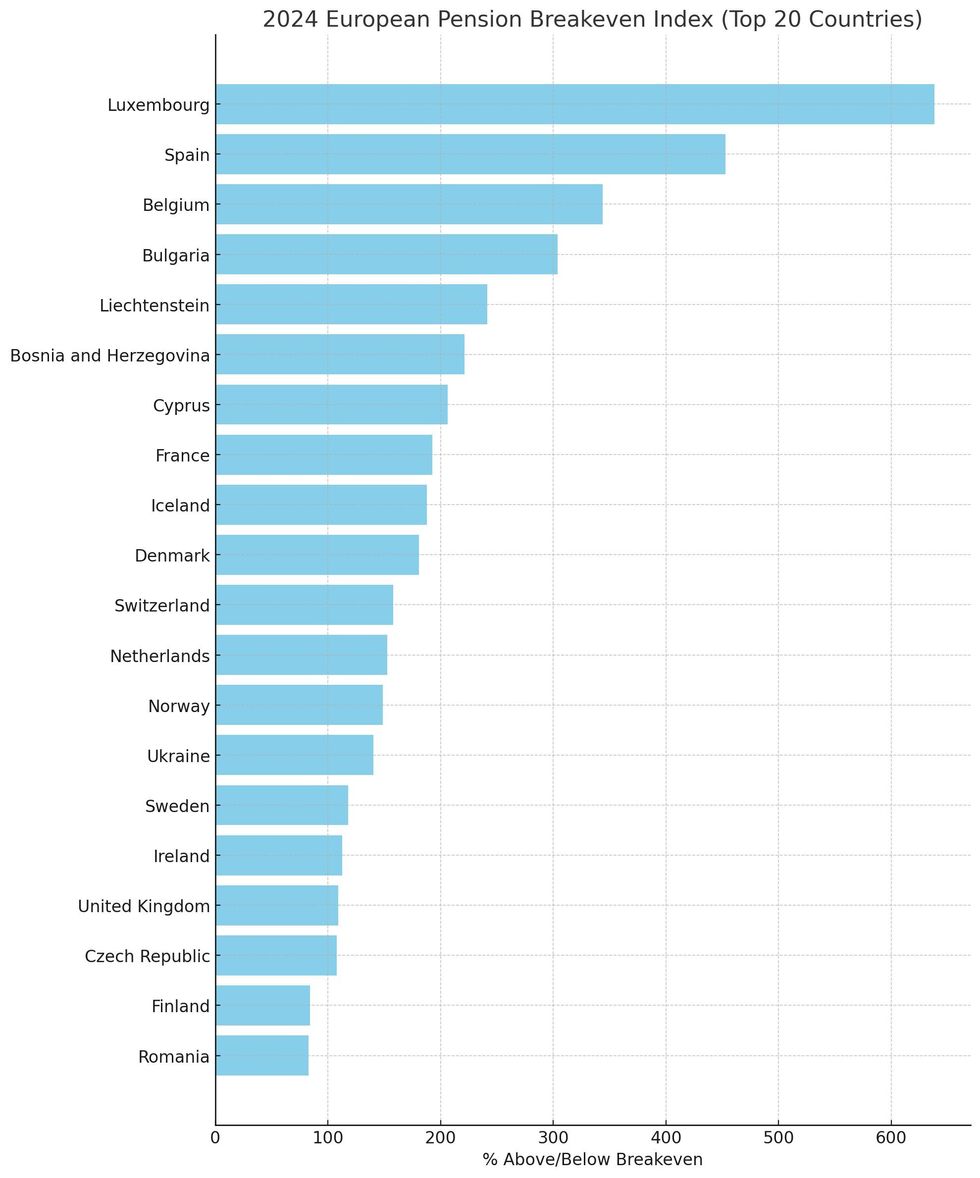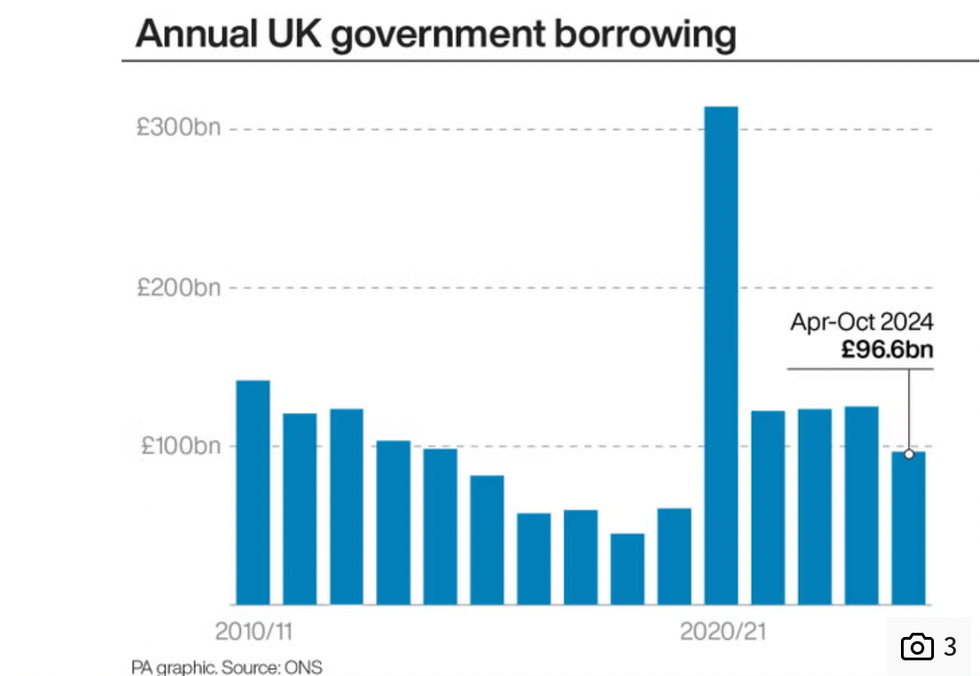European countries are offering their older citizens nearly £8,000 more annually towards the equivalent state pension compared the amount received by British pensioners.
Iceland offers the highest pension in Europe at £20,063.08 per year, more than £8,000 above the UK’s annual state pension of £11,973.
According to the Organisation for Economic Cooperation and Development, Iceland’s full basic pension is valued at ISK 3,439,428, equivalent to 31 per cent of average worker earnings.
However, Iceland’s cost of living is around 40 to 50 per cent higher than in the UK, meaning pensioners would spend almost double on weekly food shopping, property and basic goods.

Pensioners in Iceland get £8,000 more than their British counterparts
GETTY / CHAT GPT / ALMOND FINANCIAL
The normal pension age in Iceland is 67, compared to the UK’s current 66, and full pension eligibility requires 40 years of residency.
Furthermore, Iceland provides a pension supplement for single pensioners worth up to ISK 869,124 (£5,071) annually, representing eight per cent of average earnings.
UK pensioners are left with just £74.40 more than the average cost of living each month, according to research by pension advisors Almond Financial.
Concerningly, the UK ranks 17th in Europe’s Pension Breakeven Index, dropping one place from last year’s report.
Do you have a money story you’d like to share? Get in touch by emailing [email protected].

Older households have struggled with the cost of living crisis in recent years
GETTY/PA
The maximum UK state pension pays £884.40 per month to retirees, whilst the monthly cost of living for a single person excluding rent stands at £810.40. This leaves pensioners just 9.18 per cent above the pension income breakeven point.
Research analysed all 50 European countries, comparing state pensions against average living expenses including food shopping, restaurant meals and energy bills to establish which nations offer the most to retirees relative to their cost of living.
Luxembourg tops the European Pension Breakeven Index with its pension system paying out an average of €6,095.87 per month. This represents a substantial £4,327.47 more than the UK state pension each month.
With Luxembourg’s generous pension provision, retirees have substantial room for discretionary spending beyond basic living costs, unlike their UK counterparts who face minimal surplus above essential expenses.

How do UK state pensions compare to other countries?
CHAT GPT / ALMOND FINANCIAL
Principal financial adviser at Almond Financial, Sam Robinson, warned that UK pensioners are facing a real-terms pay cut compared to last year.
“The UK has a system that is just above the breakeven point which means at present, there isn’t much room to manoeuvre for those battling the cost of living crisis,” Robinson commented.
LATEST DEVELOPMENTS:
 Rachel Reeves is hoping pension megafunds will tame sky-high borrowing by driving investment PA
Rachel Reeves is hoping pension megafunds will tame sky-high borrowing by driving investment PA Despite the recent increase in state pension, pensioners now have approximately £74.40 surplus after essentials, down from around £115 in last year’s report.
“Although the increase in the state pension was well intended, it actually works out to be a real-terms pay cut for most pensioners,” Robinson added.
He emphasised that those over 66 need to explore alternatives beyond relying solely on the state pension, stressing the importance of seeking professional pension advice.
the government has unveiled plans to double the number of UK pension megafunds by 2030, where smaller local authorities and private workplaces combine resources to achieve greater returns.









